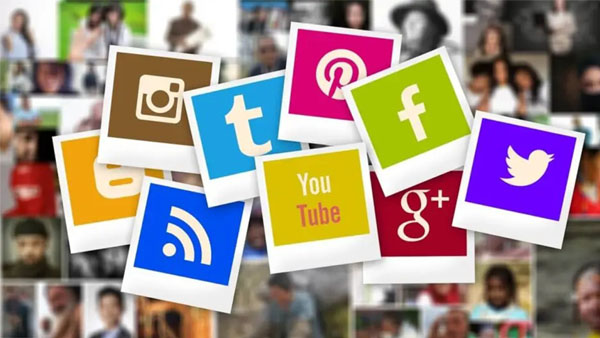By Satyabrat Borah
In an era where social media has become a primary platform for expression, communication, and activism, the concept of imagined righteousness has emerged as a significant challenge to civil discourse and the protection of fundamental rights. This phenomenon, coupled with the state’s increasing attempts to regulate online spaces, raises critical questions about the balance between individual freedoms and governmental authority. Courts, as guardians of constitutional protections, play a pivotal role in ensuring that citizens’ rights to free speech, privacy, and due process are not eroded under the guise of maintaining order or combating perceived wrongs. The intersection of imagined righteousness and state power on social media demands a nuanced examination of how courts must navigate this complex terrain to safeguard democratic values.
Social media platforms have transformed the way people interact, offering unprecedented opportunities for individuals to voice their opinions, share ideas, and mobilize for causes. However, this democratization of expression has also given rise to a culture of imagined righteousness, where users often believe their moral stance justifies aggressive or exclusionary behavior. This manifests in phenomena like cancel culture, where individuals are publicly shamed or ostracized for perceived transgressions, often without due process or fair consideration of context. The self-appointed moral arbiters on these platforms wield significant influence, shaping narratives and pressuring others to conform to their standards of righteousness. Such conduct can stifle open debate, as fear of backlash discourages dissenting voices. While social media empowers individuals, it also amplifies mob mentality, where the loudest or most aggressive voices claim moral authority, often disregarding nuance or evidence.
This culture of imagined righteousness is not limited to individual users. Corporations, influencers, and even governments participate in this dynamic, leveraging their platforms to assert moral or ideological dominance. The danger lies in the chilling effect this creates, where individuals self-censor to avoid being targeted. Free speech, a cornerstone of democratic societies, is undermined when people feel unable to express controversial or unpopular opinions. Courts must recognize this as a threat to the public square, where diverse ideas should ideally coexist. The judiciary’s role is to ensure that the right to free expression is protected, even when certain viewpoints are deemed offensive or unacceptable by vocal groups online. This does not mean condoning harmful speech, such as incitement to violence or defamation, but rather ensuring that restrictions on speech are narrowly tailored and justified by clear legal standards.
Parallel to the issue of imagined righteousness is the state’s growing inclination to regulate social media. Governments worldwide have cited concerns over misinformation, hate speech, and national security to justify sweeping controls over online content. While some regulation is necessary to address genuine threats, such as terrorism or child exploitation, the risk of overreach is significant. States often exploit these concerns to suppress dissent, monitor citizens, or consolidate power. For example, laws that vaguely define “harmful content” can be weaponized to silence political opponents or minority voices. In some jurisdictions, governments have demanded access to user data or compelled platforms to remove content without transparent justification. Such actions erode privacy and free speech, creating an environment where citizens are wary of expressing themselves online.
The state’s untrammelled power in this context is particularly concerning because it often operates under the same veneer of righteousness as individual actors on social media. Governments may claim to act in the public’s interest, framing their interventions as necessary to protect societal values or national security. However, without robust checks and balances, these interventions can devolve into censorship and surveillance. Courts must act as a bulwark against such overreach, ensuring that any restrictions on online conduct comply with constitutional protections and international human rights standards. This includes scrutinizing laws and policies to ensure they are proportionate, transparent, and subject to judicial oversight.
The judiciary’s role in protecting citizens’ rights on social media is multifaceted. First, courts must uphold the right to free speech, which is often under threat from both private actors and the state. Landmark cases, such as those affirming the right to anonymous speech or protecting satirical content, demonstrate the judiciary’s capacity to adapt constitutional principles to the digital age. However, courts must also navigate the tension between free speech and other rights, such as privacy or protection from harassment. For instance, doxxing, which is the malicious disclosure of personal information, poses a significant threat to individuals’ safety and privacy. Courts must balance the right to free expression with the need to protect citizens from harm, ensuring that remedies are precise and do not unduly restrict legitimate speech.
Second, courts must safeguard privacy in an era where social media platforms collect vast amounts of user data. Governments and private entities often exploit this data for surveillance or commercial purposes, undermining individual autonomy. Judicial oversight is critical to ensuring that data collection and sharing practices comply with privacy laws and constitutional protections. For example, courts have struck down overly broad surveillance programs in various jurisdictions, emphasizing the need for targeted and justified measures. As social media becomes a central hub for personal and political expression, protecting user data is essential to maintaining trust in these platforms as spaces for free discourse.
Third, courts must address the procedural injustices that arise from imagined righteousness and state overreach. On social media, individuals are often judged and punished without due process, whether through public shaming or platform bans. Similarly, state actions such as content takedowns or account suspensions may lack transparency or avenues for appeal. Courts can play a corrective role by ensuring that both private platforms and governments adhere to principles of fairness and accountability. This might involve mandating clear guidelines for content moderation or requiring governments to justify restrictions on speech with evidence of harm. By establishing legal precedents that prioritize due process, courts can mitigate the arbitrary exercise of power in online spaces.
The interplay between imagined righteousness and state power also raises questions about the role of social media platforms themselves. These private entities wield immense influence over online discourse, acting as gatekeepers of content and arbiters of acceptable speech. Their policies, often shaped by public pressure or commercial interests, can mirror the moral posturing of imagined righteousness. For example, platforms may suspend accounts or remove content to appease vocal critics, even when such actions lack clear justification. Courts must hold these platforms accountable, ensuring that their content moderation practices do not infringe on users’ rights. This is particularly important in jurisdictions where platforms act as de facto agents of the state, enforcing government censorship under the guise of private policy.
The global nature of social media adds another layer of complexity. Different countries have varying legal standards for free speech, privacy, and online conduct, creating challenges for platforms operating across borders. Courts in democratic societies must set a standard for protecting rights in a way that influences global norms. By striking down overly restrictive laws or affirming robust protections for speech and privacy, courts can signal to other jurisdictions the importance of upholding democratic values in the digital age. This is especially critical in regions where authoritarian regimes seek to control online spaces, often under the pretext of combating misinformation or protecting public morality.
Ultimately, the judiciary’s role is to ensure that neither imagined righteousness nor state power undermines the democratic potential of social media. This requires a delicate balance: protecting free speech while addressing genuine harms, safeguarding privacy while allowing for legitimate law enforcement needs, and ensuring fairness in a space where mob justice and arbitrary state actions are all too common. Courts must approach these issues with a deep understanding of the technological and cultural dynamics of social media, recognizing that their rulings will shape the future of online discourse.
The challenge of imagined righteousness on social media reflects broader societal tensions about morality, power, and accountability. When individuals or groups assume the mantle of moral authority, they risk creating an environment where dissent is punished, and nuance is lost. Similarly, when states assert unchecked control over online spaces, they threaten the very freedoms that make social media a vital tool for democracy. Courts, as impartial arbiters, are uniquely positioned to address these challenges. By grounding their decisions in constitutional principles and human rights, they can protect citizens from both private vigilantism and state overreach.
As social media continues to evolve, so too must the judiciary’s approach to these issues. This includes staying abreast of technological advancements, such as the rise of artificial intelligence in content moderation, and their implications for rights. It also means engaging with the public to foster greater understanding of the legal principles at stake. By doing so, courts can help cultivate a digital public square where diverse voices can thrive without fear of retribution or censorship. In this way, they uphold not only the rights of citizens but also the democratic ideals that social media, at its best, has the potential to advance. The task is formidable, but the stakes are too high for courts to shy away from their responsibility.




